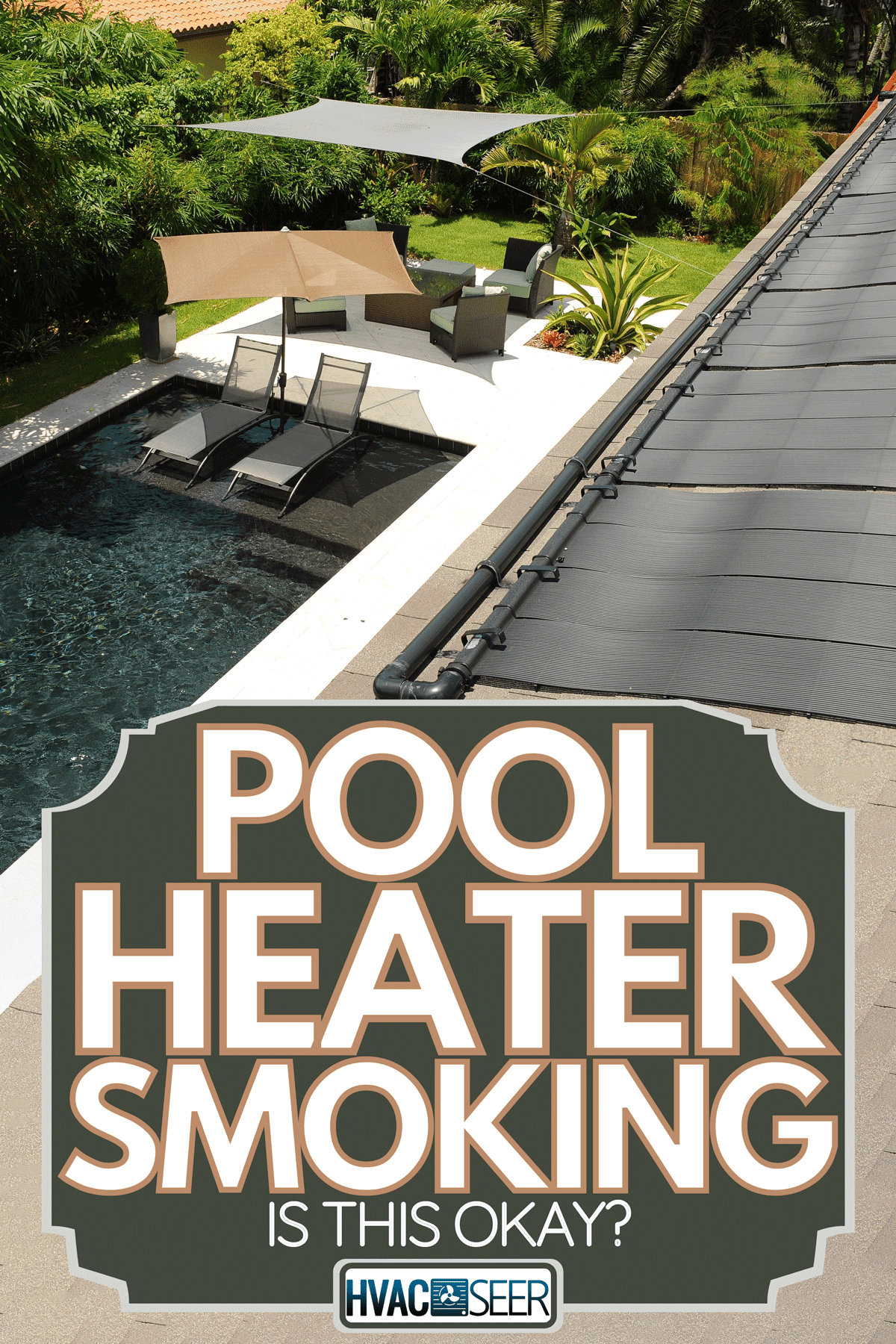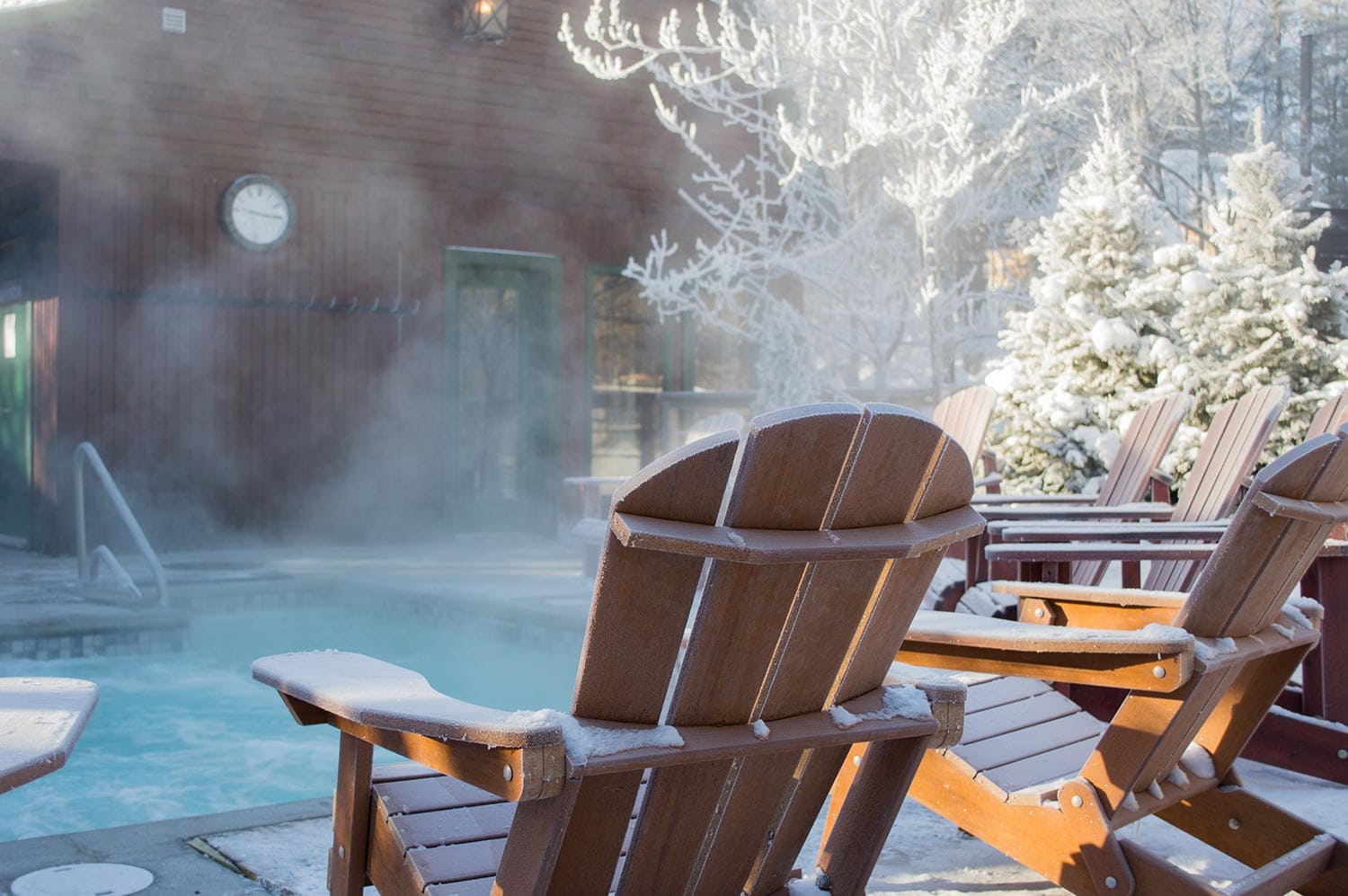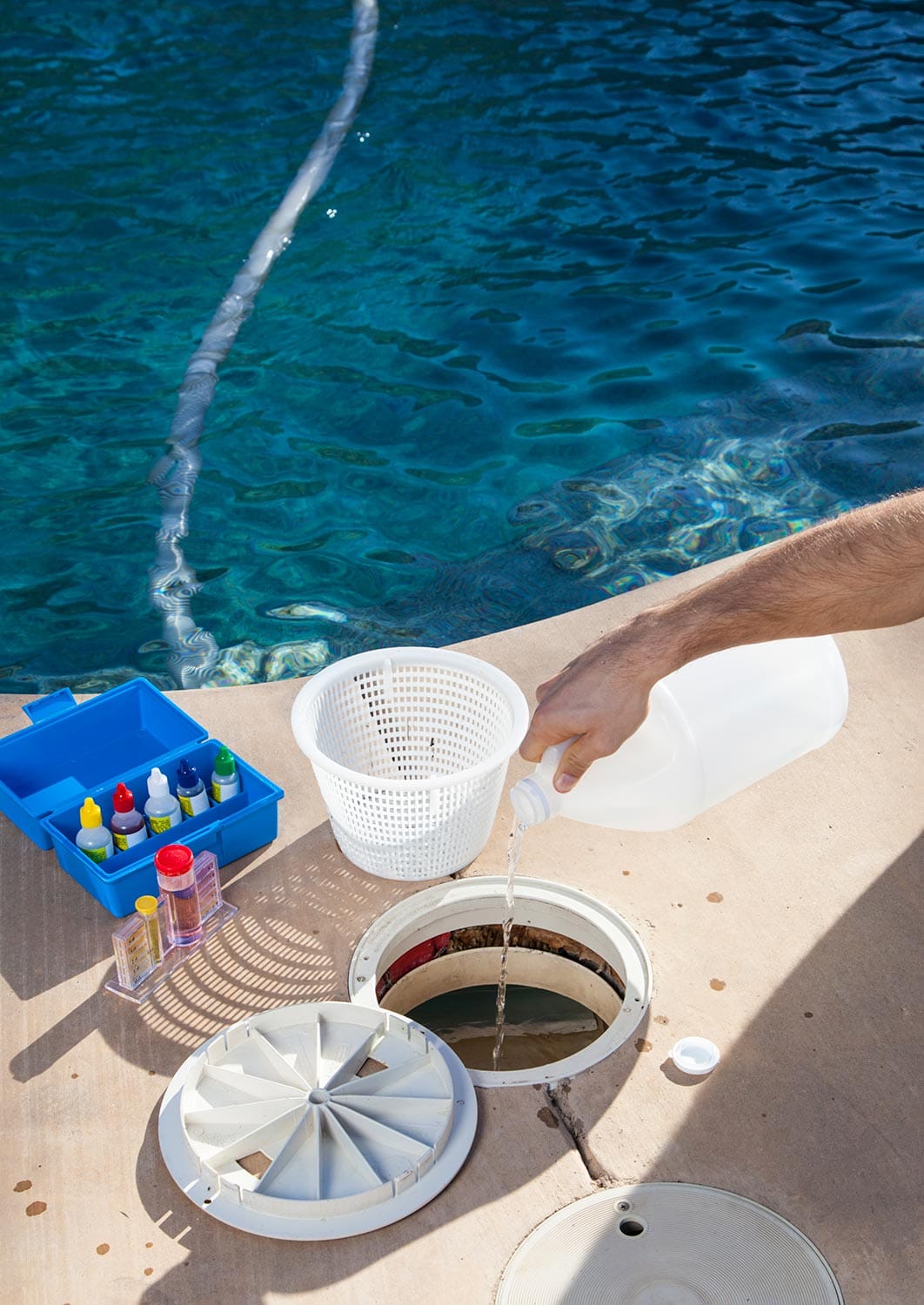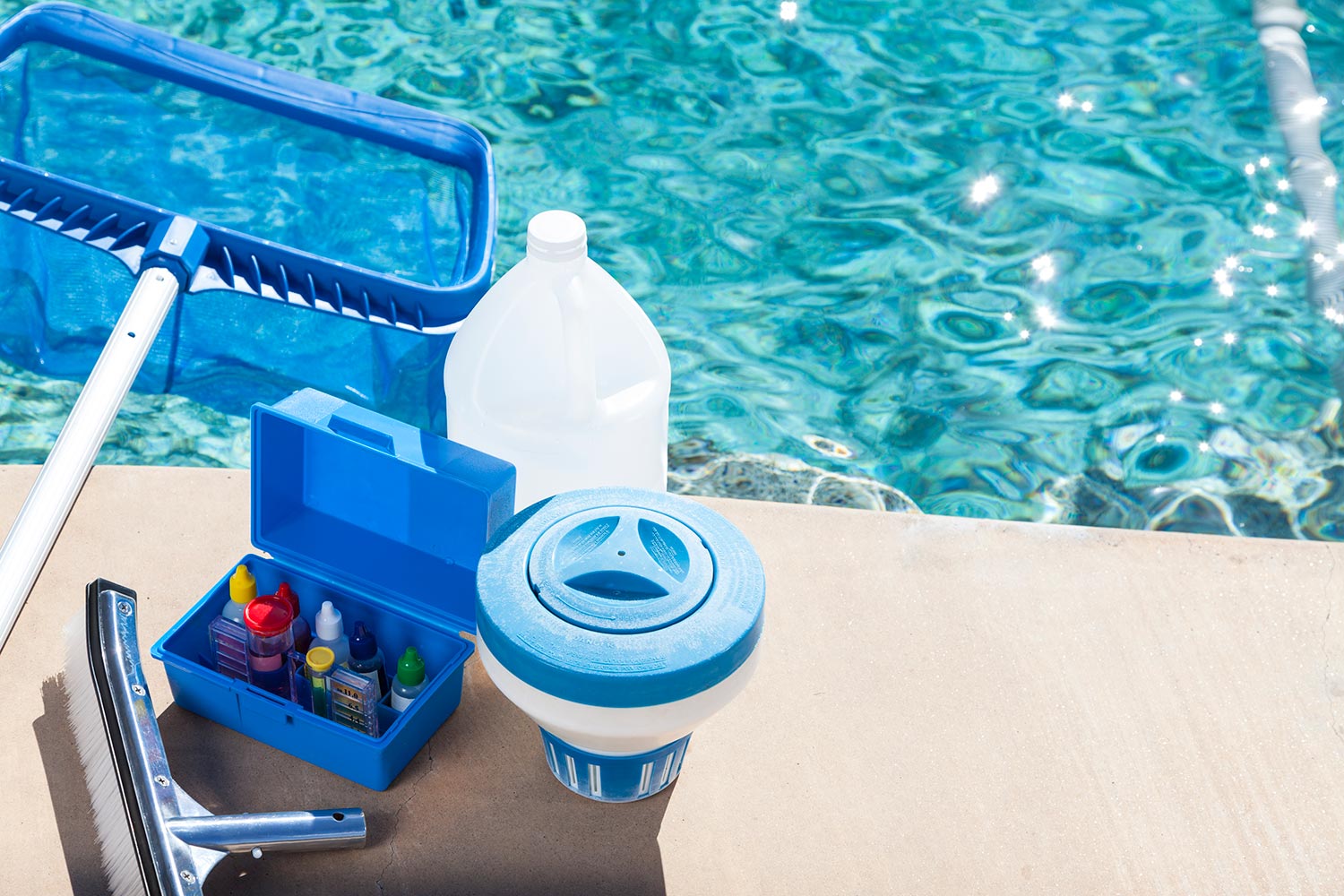Having a heated pool is a luxury, but it may raise a concern if your heat pump is smoking. So is this something you should be worried about? Let's take a look at why this is happening below.
It is usual for a heat pump to be producing grey smoke when it first starts up. This typically happens if the heat pump has frost on it or the first time it's been started after winter. In addition, some manufacturers put a coating on the burner parts to avoid them from rusting.
As you can see, if your heat pump is smoking for a short amount of time, it isn't something to worry about. In this article, we will take a closer look at why your heat pump is smoking. In addition, we will answer other frequently asked questions about pool heat pumps, so read on!

Pool Heater Smoking—Is This Okay?
A pool heater is used to heat water in a swimming pool, hot tub, or spa. These heating devices are typically automated and integrated into the pool's main circuit panel. A simple switch or knob can often operate on the side of the pool.
Heaters work in different ways depending on their design; however, there are two main types: gas and electric. A gas heater has an exposed flame that directly heats the pool's water. An electric heater transfers heat to the water using electric resistance coils, similar to how an electric stove works.
Either of these pool heaters can produce smoke when turned on for the first time. The reason for this is the burner and fan need to burn off dust and other residue before they can be safe to use. Therefore, the smoke that you see coming from the unit is not dangerous, even if it smells somewhat like burning rubber or plastic.
In addition, pool heaters will smoke after being turned on for the first time after winter. Also, if the temperatures drop enough to produce frost, your pool heater can produce a cloud of smoke which means it is burning off the frost. This is a good thing because you know your pool heater is working!
If you turn on your heater and it smokes continuously or if it is black smoke, then you should call a professional—this means that there is an issue with your heater. For example, the heat exchanger may have cracks or holes, causing smoke to leak into the air.

Can a pool heater overheat?
In short, no. The reason is that the pool heater has an automatic turn-off switch, which prevents them from working to overheating.
They do not overheat because they are designed to shut down if it senses the water has exceeded a specific temperature. This automatic switch will turn on once the water dips below this threshold.
Pool heaters are designed only to run when necessary. If your pool heater does not have enough chemicals, it may overheat. This would cause it to shut down. Your pool heater will never overheat unless there are not enough chemicals in the water or if there's an issue with your pool heater itself.
However, a pool heater can fail if it malfunctions or is used in a too-warm environment. When a pool heater is operating correctly, it will never get to a temperature that could pose a risk of overheating the water. In addition, if the pool heater becomes clogged for one reason or another, it could stop working.
How long can I run my pool heater?
You should always set your pool heater to cycle to maintain temperatures. You should let the pool heater run continuously. This means that you should set it to run just long enough for the temperature to return to your desired setting. Depending on how warm you want the water, you can increase or decrease this time.
Be careful not to let your pool heater cycle too much because if it runs all day, every day, then it will work very hard and become less efficient. It can also cause your pool heater to become damaged, leading to needing repairs or maintenance.
In addition, you shouldn't turn on your pool heater only when you want to use it. The reason being is that it will use more energy to bring the pool from the low temperature to the desired temperature.
That's not saying if you are going on a vacation for two weeks, you should not turn your pool heater off. It is better to turn it off, but if you are home, it is better to let it cycle on a timer for the most part.
Is it safe to leave the pool heater on all night?
You should set your pool heater to turn off at night time. Instead, you should use a pool cover, solar rings, or a solar cover to keep your pool at a comfortable temperature. Then have the pool heater timed to turn on the next day.
Using the pool cover as the heater turns on will heat the pool faster. This is because the cover acts as an insulator resulting in a faster heating cycle.

Can pool heaters explode?
If your pool heater uses a gas line and that gas line becomes blocked, the heater can explode. This situation has only occurred if the pool heater was operated outside of its normal conditions.
If your pool heater is not venting correctly, it can cause hydrogen gas to build up in the enclosure. The reason is that the heater can no longer remove this gas by ventilation, resulting in an explosion hazard.
Be mindful to check your gas lines to clean and clear of debris. If you are experiencing any problems with your pool heater, you should contact a professional.
What causes pool heater failure?
Many things can cause pool heater failure.
If your pool is not cleaned correctly, you may need to shock your water. Cleaning the pool and adding proper chemicals will allow for a safe environment that prevents overheating or failure of the heater.
Dirty elements in a gas-powered pool heater may also cause it to stop working. The gas pool heater has many different parts that, if dirty or clogged, will cause it to stop working.

In addition, not having a check valve behind the chlorinator can cause the heater to fail. The reason is that the heater can corrode, causing it to fail.
How do you maintain a pool heater?
To maintain a pool heater, you must have regular maintenance done. In addition, you should have your gas-powered pool heater serviced every year by a trusted professional.
In addition, you can perform some of the routine cleanings yourself. For example, cleaning your pool heater is essential because if there are any leaks or problems, they might cause internal damage.
You should clean out the filter and look for any clogs in the gas lines, such as broken filters. Any debris inside of your pool heater will cause it to break; this is why you should always check your pool heater before turning it on for the season. You don't want to take a risk that could end up harming your heater or pool.
Lastly, you should always check for signs of corrosion on your pool heater and make sure it is winterized properly. Checking at the beginning of each season will allow you to prevent any potential problems.
You should call a professional if you find any signs of corrosion or leaks. Even if you believe there is damage, it can be hard to tell without a professional inspection. When in doubt, contact your pool service, and they should inspect and fix any problems.

What are the different types of pool heaters?
There are several different pool heaters, each with its pros and cons.
Gas-powered pool heaters are efficient but can release harmful gases into the air if not ventilated correctly. They also require gas to run, which means you will need to make sure your heater is safe from any leaks.
Electric pool heaters can create a large electric bill if not used properly. In addition, the heater must be maintained frequently, so you don't damage it or cause an electrical fire.
Solar-powered pool heaters are easy to maintain and pose no risk of causing an electrical fire. The heater works by having solar panels that absorb the sun's rays and convert them to heat energy.
Final Thoughts
If you require a pool heater service or are interested in purchasing a new one, it's always recommended to consult with an expert. The best way to make sure your pool is safe is by hiring a trustworthy professional.
For more articles like this one, check out our website:
How Long Do Pool Heaters Last?
